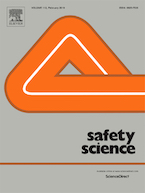Perceived safety and attributed value as predictors of the intention to use autonomous vehicles: A national study with Spanish drivers
- Autores: Luis Montoro, Sergio Useche, Francisco Alonso, Ignacio Lijarcio, Patricia Bosó-Seguí, Ana Martí-Belda (2019).
- Tipos de publicación: Article
- URL Publicación: Perceived safety and attributed value as predictors of the intention to use autonomous vehicles: A national study with Spanish drivers
- Título Publicación (nombre del libro o revista): Safety Science. Num.120:865-876
-
Resumen:
Sooner than later, the growing development of Autonomous Vehicles (AVs) will represent not only an imminent transformation of transportation dynamics, but also further advantages for their users, including many improvements in road crash prevention, efficiency and sustainability. However, different concerns and constraints may affect the intention of adopting this technology among its potential customers, especially for what concerns those constraints related to safety, viability and stability. The objective of this study was to examine the influence of perceived safety and value attributed to the AV in the drivers’ intention to use it, considering the drivers’ demographic factors, driving habits, interaction with information technologies and self-reported safety records (using conventional vehicles) as potential predictors. For this cross-sectional study, data from 1205 drivers of conventional vehicles were analyzed through a structural equation modeling (SEM) approach. The intention to use autonomous vehicles could be predicted through demographic and driving-related factors, as well as by the level of interaction of individuals with information and communication technologies (ITCs). It was also found that the perceived safety of AVs and their attributed value for transport and road safety mediate the associations between drivers’ features and the final intention of using (or not) autonomous vehicles. The results of this study suggest that perceived safety and the value attributed to AVs significantly influence the intention of adopting it. In other words, a deeper emphasis on the safety, causality prevention and efficiency-related benefits may strengthen the acceptance of this new technology and enhance its progressive inclusion in transport dynamics among drivers.
DOI: 10.1016/j.ssci.2019.07.041ISSN: 0925-7535










